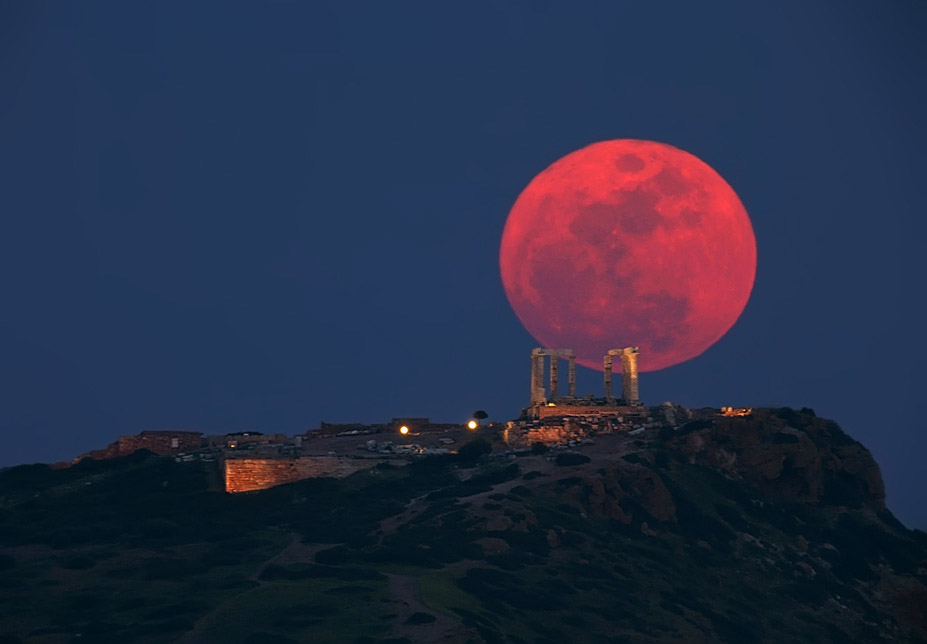Difference between revisions of "April 19, 2009"
| Line 12: | Line 12: | ||
Another [http://apod.nasa.gov/apod/ap080620.html Moonrise] over Poseidon.<br /> | Another [http://apod.nasa.gov/apod/ap080620.html Moonrise] over Poseidon.<br /> | ||
<br /> | <br /> | ||
| + | <p><b>Yesterday's LPOD:</b> [[April 18, 2009|D]] </p> | ||
| + | <p><b>Tomorrow's LPOD:</b> [[April 20, 2009|Why not Venus?]] </p> | ||
<hr /> | <hr /> | ||
Revision as of 22:27, 4 February 2015
Red Moon Rising

image by Chris Kotsiopoulos, Greece
Do you remember the temple of Poseidon at Sounio Greece? Perhaps the most photographed ancient temple in the world, two times APOD from the Greek astro-photographer Anthony Ayiomamitis. This time the Moon that accompanies the ancient monument is huge, more than two times the diameter of the temple itself. As you would expect, the Moon didn’t grow bigger, nor has the temple shrunk... The key is the distance of the photographer from the foreground. After careful planning the shot was taken at a four kilometer distance from the temple, very close to the absolute limit that anyone could take a similar photo, due to the geomorphology of the area. It was a very tough shooting. I had to literally run with all my gear through some dense fields trying to reach on time an almost inaccessible shore where I could shoot the Moon as high as possible from the sea level. I was in time, but when the Moon started to rise, I realized that I was almost 30 meters out of place, so in a matter of seconds, I had to lift the telescope, run again across the beach, relocate the target and shoot the photo. Astrophotography and intense workout combined!
Chris Kotsiopoulos
Related Links
Another Moonrise over Poseidon.
Yesterday's LPOD: D
Tomorrow's LPOD: Why not Venus?



